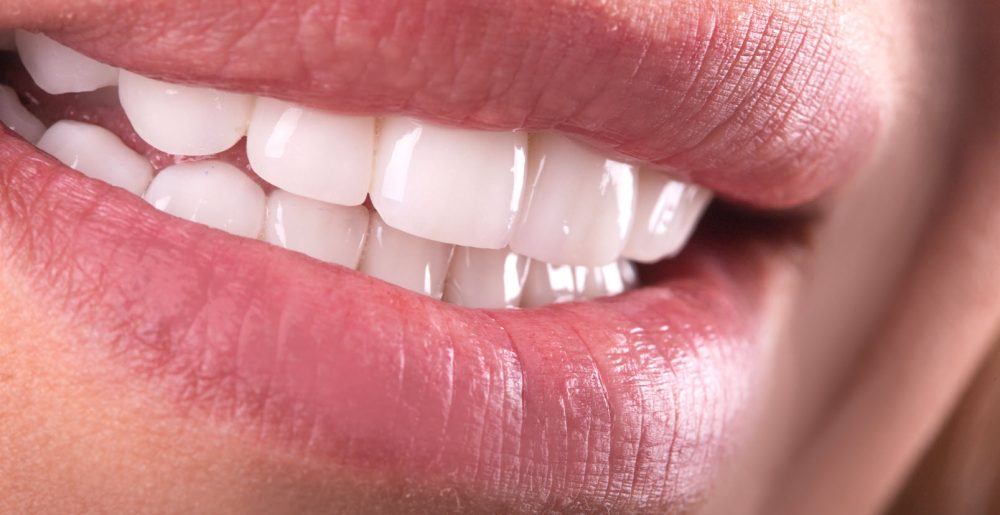Cosmetic Dentist With Sedation Options in Brisbane
Welcome to Cosmetic Dental Brisbane: Your Guide to a Beautiful Smile
Welcome to Pure Dentistry, your trusted provider for cosmetic dental treatments in Brisbane. We are dedicated to creating beautiful smiles and enhancing our patients’ confidence through various cosmetic dentistry procedures.
From teeth whitening to porcelain veneers, our team of experienced dentists is committed to providing personalised care that meets your needs.
What Is Cosmetic Dentistry?
Cosmetic dentistry refers to dental procedures designed to improve the appearance of your teeth and smile. These treatment options may include teeth whitening, dental veneers, dental bonding, and implants.
The goal of cosmetic dentistry is not only to make your teeth look better but also to improve your dental health.
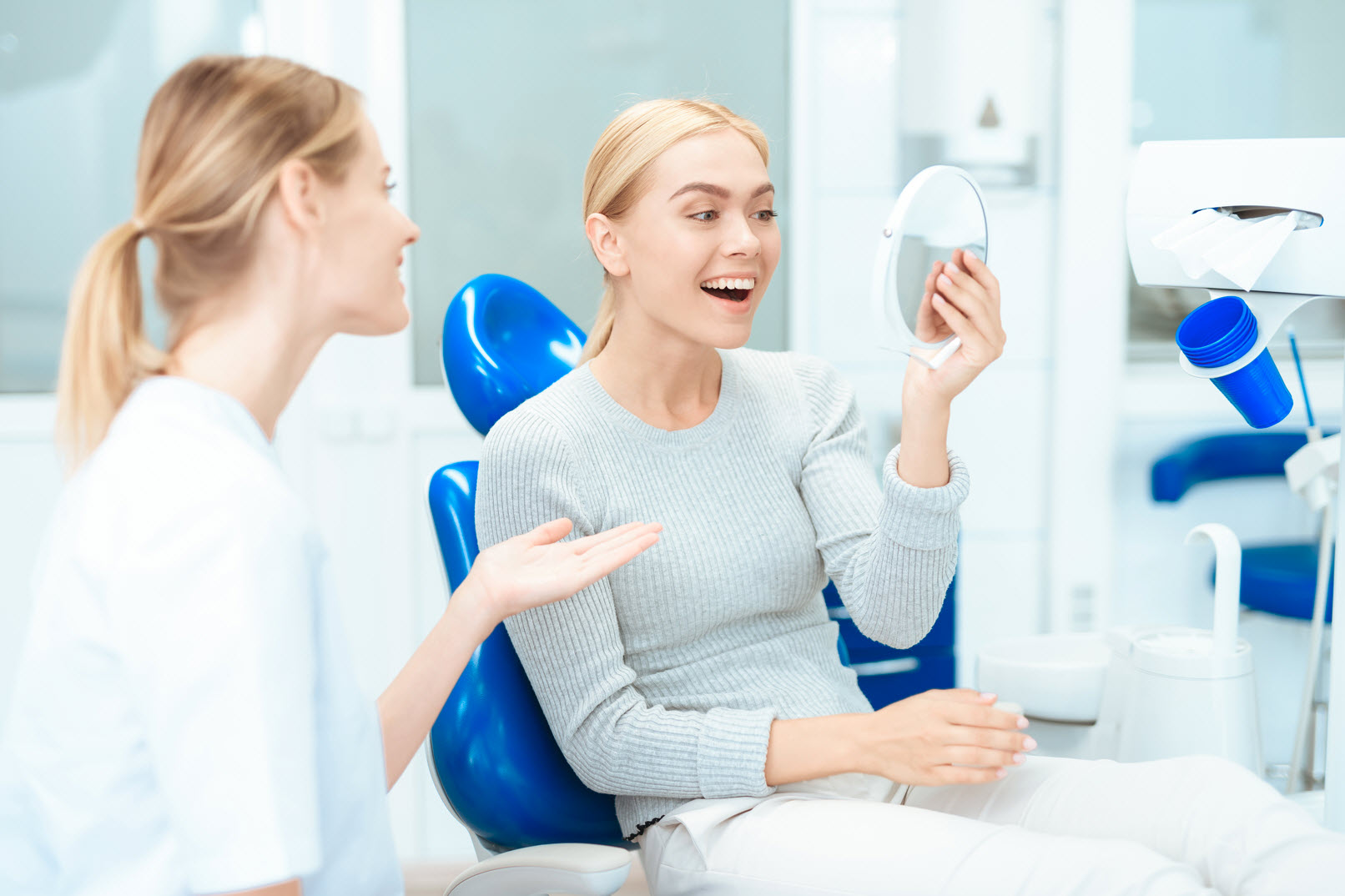
Why Cosmetic Dental Treatments?
Choosing to undergo cosmetic dentistry treatments is not only about beautifying your smile but also about boosting your confidence and enhancing your overall oral health.
Cosmetic dental treatments can transform your smile and boost your self-esteem if you’re self-conscious about your teeth due to staining, misalignment, or other aesthetic concerns.
The realm of cosmetic dentistry is broad, encompassing a multitude of treatments tailored to meet a variety of dental needs. From simple procedures like teeth whitening to more complex treatments like a tooth implant, there’s a solution for everyone.
Cosmetic dentists play a crucial role in these transformations, utilising their skills and expertise to guide you through the process and ensure optimal results.
At Pure Dentistry, our team of experienced cosmetic dentists is dedicated to providing comprehensive dental treatments that aim to improve your teeth’s appearance and promote good oral health.
We firmly believe that a healthy, attractive smile can profoundly impact your overall well-being and quality of life.

Cosmetic Dental Procedures
Cosmetic treatments at Brisbane Dental Sleep Clinic, performed by skilled Brisbane cosmetic dentists, serve dual purposes – they aim to enhance your smile aesthetically and keep your teeth healthy.
We understand that each tooth has its role in a beautiful smile; thus, each cosmetic procedure we provide is meticulously planned and executed.
We utilise cutting-edge technology and the latest techniques to ensure optimal aesthetic results for our patients. Our comprehensive range of treatments are designed with your well-being in mind, striving to deliver the best possible outcomes for every procedure.
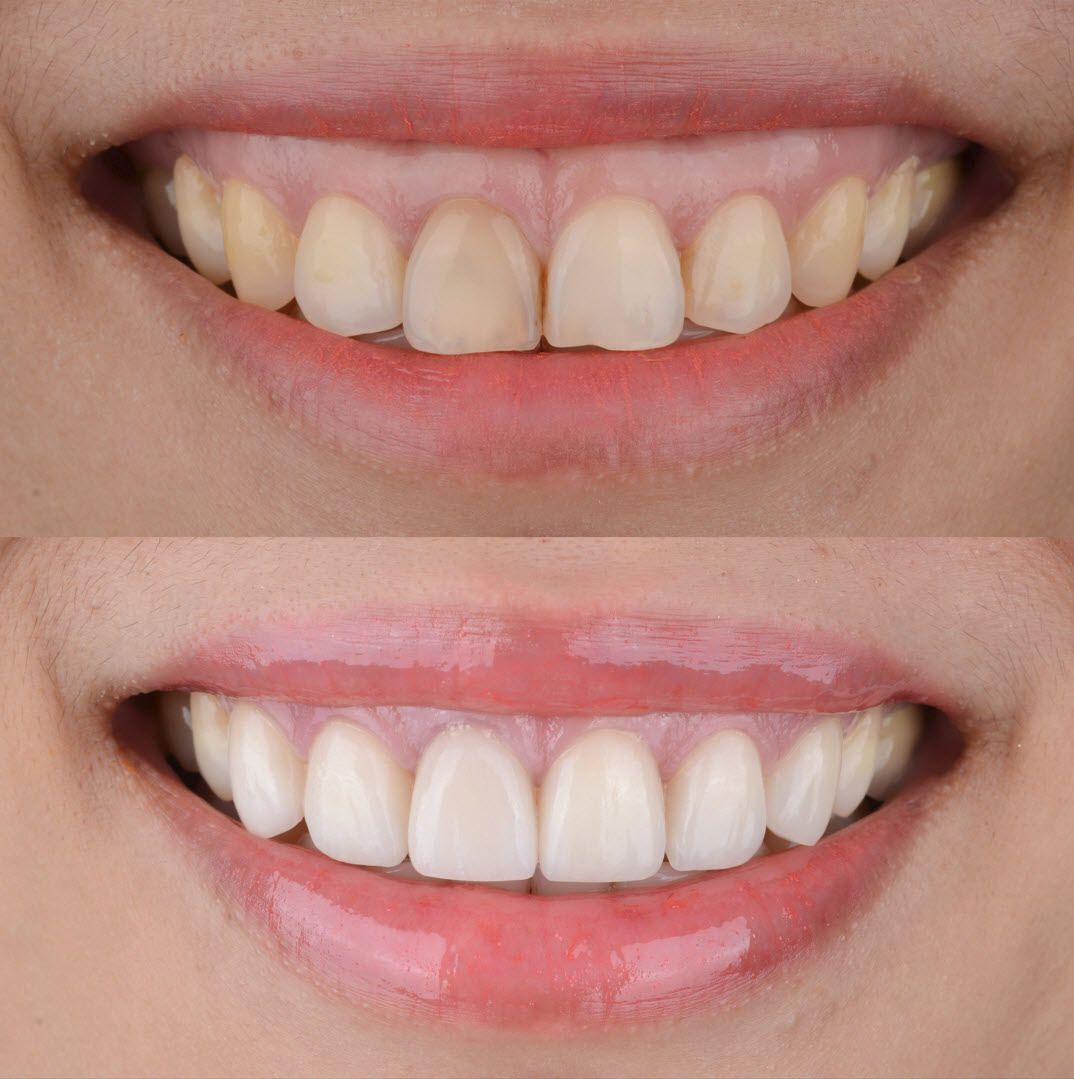
Let’s explore these treatments further:
Teeth Whitening: Brightening Your Smile
Teeth whitening is one of the most popular cosmetic dentistry treatments we offer. This simple procedure can transform discoloured teeth or stained teeth into a bright, radiant smile. We use safe and effective teeth whitening methods that remove stains caused by coffee, red wine, or ageing, brightening your smile by several shades.
Dental Bonding: Repairing Damaged Teeth
Dental bonding is a cosmetic treatment that can repair a damaged tooth and enhance your smile’s appearance.
Using a tooth-coloured composite resin, we can fix chips, cracks, and minor misalignments in your teeth, providing a natural-looking, seamless finish.
Dental bonding is a quick and cost-effective treatment option that can significantly improve the aesthetic of your smile.
Veneers: Reshaping Your Smile
Dental veneers (porcelain veneers and resin composite veneers) can drastically reshape and improve your smile. These thin shells, expertly crafted in our dental laboratory, are custom-made to fit over the front surface of your teeth, mimicking the appearance of natural tooth enamel. They effectively correct discolouration, gaps, and misshapen or crooked teeth.
At Pure Dentistry, we specialise in crafting veneers that match the natural colour of your teeth, ensuring seamless integration with your smile. Our dentist and team work closely with the dental laboratory to create porcelain or resin composite veneers that beautifully mimic natural tooth enamel.
Our porcelain and resin composite veneers are corrective tools and integral components of a beautiful, natural-looking smile makeover. With our veneers, crafted by our skilled dentist and dental laboratory team, we aim to offer you the chance to redesign your smile, enhancing both its aesthetics and function.
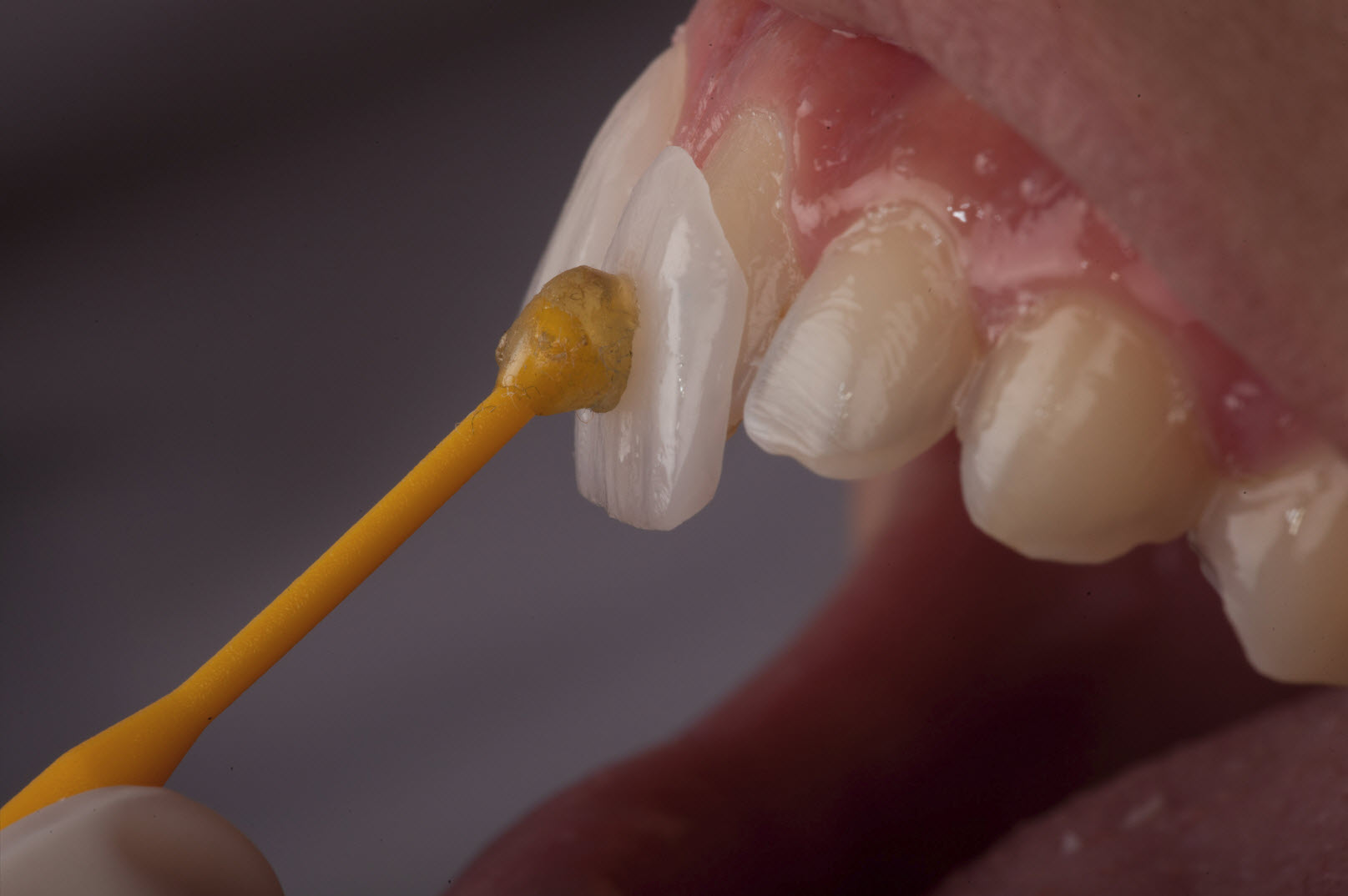
Dental Crowns: Protecting Damaged Teeth
Dental crowns are a versatile cosmetic dental treatment that can protect and enhance the appearance of a damaged or decayed tooth. Custom-made by a dentist to fit over the entire tooth, crowns can restore a tooth’s shape, size, and strength, preserving your oral health and improving your teeth’s appearance.
The materials used by our dentist to create crowns are typically porcelain, composite resin, and porcelain fused to metal, each chosen for their durability and natural appearance.
Our dentist considers each patient’s specific needs and preferences to select the most suitable materials for their custom dental crowns.
Dental Bridges: Bridging the Gap
A dental bridge is a reliable solution for missing teeth, literally bridging the gap created by tooth loss. This dental procedure involves creating a ‘bridge’ between the surrounding teeth, with a prosthetic tooth or teeth in the middle.
In cases where a temporary bridge is required, we ensure a seamless transition to the final solution. Dental bridges not only restore the functionality of your bite, but they also maintain the shape of your face, all while giving you a natural-looking smile.
At Pure Dentistry, we care to match the prosthetic tooth to your natural teeth in colour and shape, ensuring that the dental bridge blends in perfectly with your smile.
Dental Implants: A Permanent Solution for Missing Teeth
A dental implant offers a durable and permanent solution for missing teeth, allowing you to resume normal activities confidently. This treatment involves the placement of a titanium implant into the jawbone, which then serves as a secure foundation for a dental crown. A temporary crown may be used for aesthetic purposes during the healing period.
Implant dentistry considers the health of your gums and the quality of your jawbone.
Therefore, before the treatment, our dentist will conduct a comprehensive examination to ensure you are a suitable candidate for dental implants.
Dental implant treatment is a popular alternative to dentures as they look, feel, and function like natural teeth, providing a comfortable and long-lasting solution for those with missing teeth.
Whether missing one or several teeth, dental implant treatment or all on 4 dental implants can restore your smile and boost your confidence.
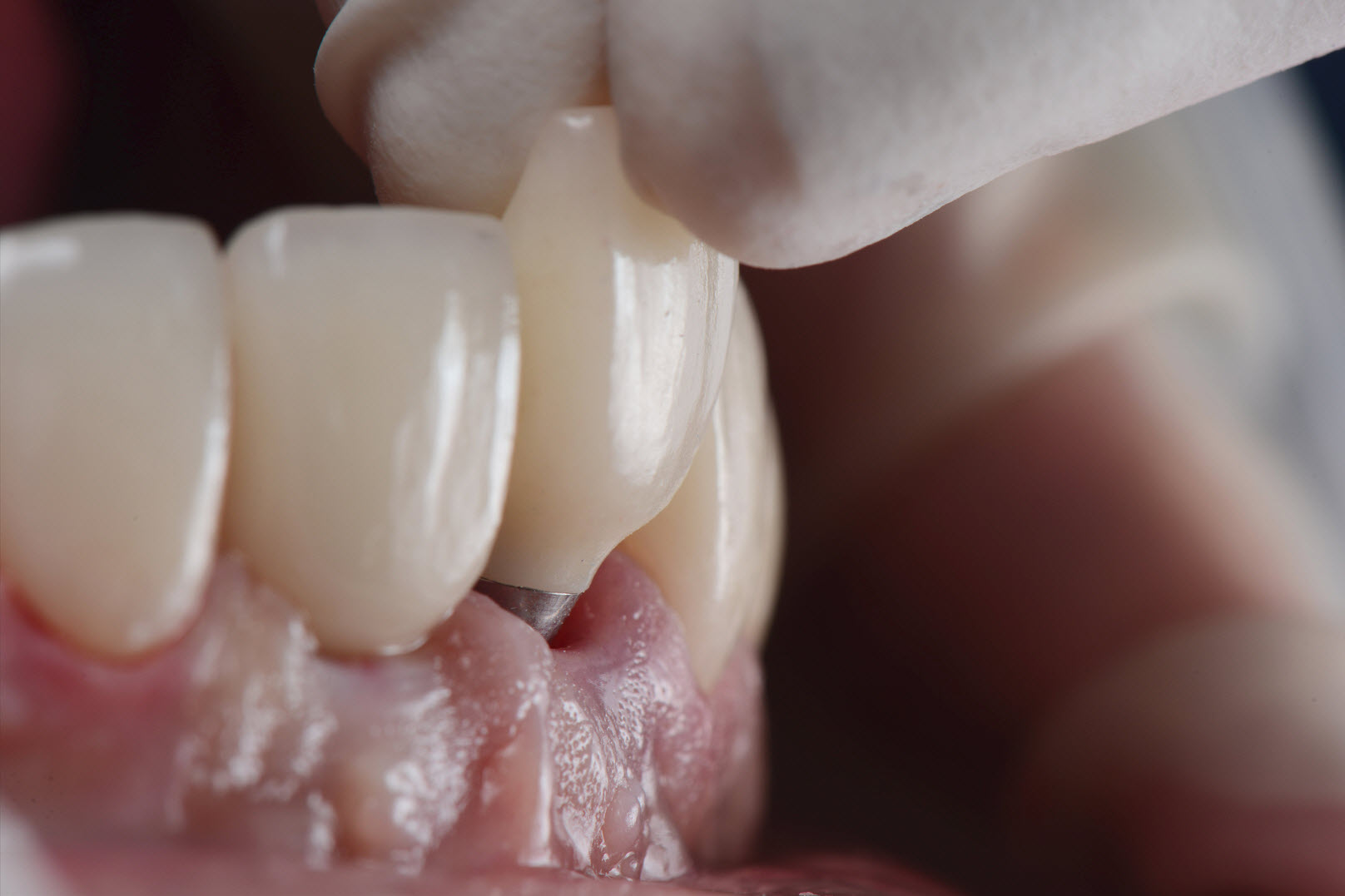
Sedation Options in Cosmetic Dentistry
For many, the idea of undergoing dental procedures may bring about a sense of anxiety or discomfort. To address this, Pure Dentistry offers sedation options in its cosmetic procedures.
Sedation dentistry involves using medication to help patients relax during dental procedures. It’s often used during procedures requiring extensive time in the treatment chair and for patients with dental anxiety.
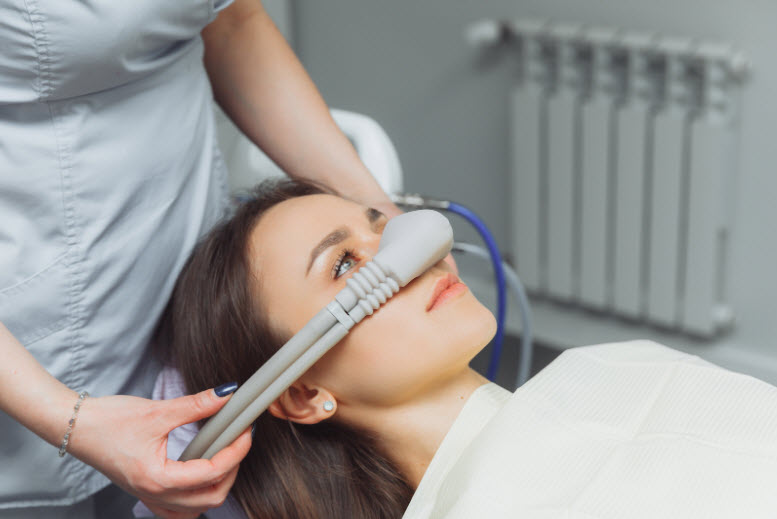
Why Choose Sedation Options in Cosmetic Dentistry?
Choosing sedation in cosmetic dentistry offers multiple benefits. For one, it can provide a relaxing and anxiety-free experience for individuals nervous about dental treatments.
It allows for more comfort, especially during complex procedures, and often lets patients feel like their procedure lasted only a few minutes.
Secondly, sedation options like happy gas, sleep dentistry or IV sedation can result in fewer appointments and less time in the dentist’s chair. Procedures often requiring multiple visits can be performed in fewer sittings, making it a convenient option for busy individuals.
Lastly, sedation can help inhibit the memory of a potentially uncomfortable procedure. That can be particularly beneficial for individuals with severe dental anxiety.
At Pure Dentistry, your comfort is our priority. We offer various sedation options, ensuring a comfortable and stress-free experience during your cosmetic dentistry procedure.

Choosing Cosmetic Dentists in Brisbane
Several key factors come into play when looking for a cosmetic dentist in Brisbane. Choosing a dental practice that prioritizes your dental health, offers a wide range of treatment options, and has a friendly team that makes you feel comfortable and cared for is essential.
What to Look for in a Cosmetic Dentist
Experience and Expertise: A reputable cosmetic dentist should have significant experience in general dentistry and cosmetic dentistry, including procedures like veneers, dental implants, and dentures. They should also be up-to-date with the latest techniques and technologies to ensure you receive the best possible dental care.
Payment Plans: Dental treatments can sometimes be an investment. Hence, choosing a dentist who provides convenient payment options is crucial. At Pure Dentistry, we’re pleased to offer payment solutions through Humm and SuperCare, making achieving the smile makeover you desire easier.
Patient-Centred Care: Good cosmetic dentists always put the needs and comfort of their patients first.
Why Choose Pure Dentistry as Your Cosmetic Dentist in Brisbane?
At Pure Dentistry, our passion lies in delivering a holistic experience in cosmetic dentistry. With an expert team of dentists and a focus on individualized patient care, we strive to ensure optimal oral health and aesthetic results.
We provide a wide spectrum of cosmetic dentistry treatment options, enabling us to cater to diverse dental needs and aesthetic goals.
Whether you’re seeking a simple teeth whitening treatment or a more comprehensive dental treatment, our team has the expertise to help.
Our commitment to patient comfort and flexible payment plans make Pure Dentistry an ideal choice for cosmetic dentistry in Brisbane. You can contact us by phone number 07 3343 4869 and start your journey towards healthier teeth and gums.
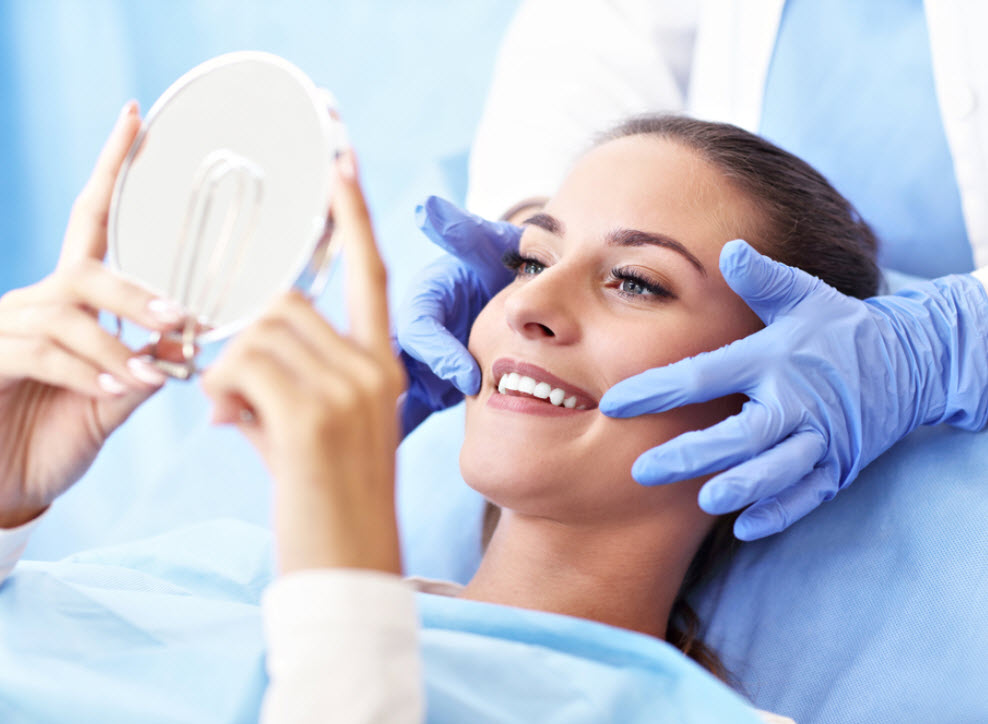
Can you be sedated for cosmetic dentistry like veneers?
While sedation is typically not necessary for cosmetic dentistry procedures like veneers, it is an option for patients who may feel anxious or prefer to be relaxed during the procedure. Generally, local anesthesia is sufficient to numb the area and reduce discomfort during the procedure, allowing the patient to remain awake and alert.
However, there are several types of sedation available:
- Oral sedatives: These are medications taken by mouth to help the patient relax.
- Intravenous (IV) sedation: Administered through a vein, this allows the patient to be conscious but in a relaxed state.
- General anesthesia: Also administered through an IV, this puts the patient to sleep for the duration of the procedure.
The choice of sedation depends on several factors, including the specific procedure, the patient’s medical history, and the preferences of the patient and the dental professional.
For instance, veneer placement involves a multi-step process that includes preparing the teeth, taking an impression, and bonding the veneers to the teeth. Some patients might find this process anxiety-inducing and might opt for sedation to help them relax.
As with any medical procedure, there are risks and benefits associated with each type of sedation. Oral and IV sedatives generally have fewer side effects and shorter recovery times than general anesthesia, but they might not provide the same comfort level for some patients.
Therefore, it’s crucial to discuss with your dental professional whether sedation is right for you before undergoing any cosmetic dentistry procedure. Your dental professional can assess your individual needs and recommend the best course of treatment for you
Can you be put to sleep to have teeth done?
Yes, you can be put to sleep or undergo general anesthesia for dental procedures, but it is relatively uncommon and used primarily as a last resort. General anesthesia renders you unconscious and unable to communicate or maintain protective reflexes, which differs from conscious sedation, where you’re partially alert and able to communicate to some degree.
General anesthesia for dental procedures has been reduced due to the emergence of IV sedation. This type of sedation works well for almost everyone with severe dental anxiety. In the UK, where this guidance has been adopted, general anesthesia for dental treatment is only used as a last resort. It is available only in hospitals or specialist clinics with critical care facilities.
If general anesthesia is deemed necessary, it must be administered by a certified specialist and monitored by trained healthcare professionals. Procedures that could result in loss of consciousness, including deep sedation techniques, are classified as general anesthesia. One such technique is the use of propofol.
General anesthesia presents challenges for the dentist, may require preliminary tests, restricts food and drink intake before the procedure, requires a caretaker post-procedure, and is expensive.
General anesthesia is typically used for dental treatment in children or patients with special needs. It’s also used in cases where the patient can’t cooperate under sedation, is intolerant to the idea of dental treatment unless unconscious, or for specific oral surgeries, like difficult wisdom tooth removals. Before undergoing general anesthesia, you can’t eat any food for 6 hours and can only drink clear liquids up to 2 hours prior to the procedure. The anesthesia is usually induced via an IV in the hand, arm, or children with gas using a breathing mask.
Who Cannot have dental sedation?
While sedation is typically not necessary for cosmetic dentistry procedures like veneers, it is an option for patients who may feel anxious or prefer to be relaxed during the procedure. Generally, local anesthesia is sufficient to numb the area and reduce discomfort during the procedure, allowing the patient to remain awake and alert.
However, there are several types of sedation available:
- Oral sedatives: These are medications taken by mouth to help the patient relax.
- Intravenous (IV) sedation: Administered through a vein, this allows the patient to be conscious but in a relaxed state.
- General anesthesia: Also administered through an IV, this puts the patient to sleep for the duration of the procedure.
The choice of sedation depends on several factors, including the specific procedure, the patient’s medical history, and the preferences of the patient and the dental professional.
For instance, veneer placement involves a multi-step process that includes preparing the teeth, taking an impression, and bonding the veneers to the teeth. Some patients might find this process anxiety-inducing and might opt for sedation to help them relax.
As with any medical procedure, there are risks and benefits associated with each type of sedation. Oral and IV sedatives generally have fewer side effects and shorter recovery times than general anesthesia, but they might not provide the same comfort level for some patients.
Therefore, it’s crucial to discuss with your dental professional whether sedation is right for you before undergoing any cosmetic dentistry procedure. Your dental professional can assess your individual needs and recommend the best course of treatment for you
Who is a candidate for sedation dentistry?
Candidates for sedation dentistry can vary widely, as the use of sedation can be tailored to the individual’s needs and circumstances.
Generally, candidates include:
- Individuals with dental anxiety or phobia, including those who fear visiting the paediatric dentist, kids dentist or needles (aichmophobia).
- Those with physical sensitivities, such as an overly sensitive gag reflex, extreme teeth sensitivity, decreased sensitivity to local anesthesia, or feelings of claustrophobia while in the dental chair.
- Individuals who have difficulty controlling movements or have special needs, including physical, cognitive, or behavioural conditions.
- Those with a low pain threshold, who can’t sit still in the dentist’s chair, have very sensitive teeth, have a bad gag reflex, or need a lot of dental work completed.
- Children who are terrified of going to the dentist or refuse to cooperate during the visit may also be given sedation. However, the type and level of sedation used in children are carefully considered based on factors like the child’s age and weight.
For IV sedation specifically, good candidates include:
- Those with moderate to high dental anxiety.
- Those who need more painful or complex dental work.
- Those with a strong gag reflex.
- For those who need longer or multiple procedures in one appointment, dental IV sedation allows for extended cooperation.
A few factors to consider when evaluating a candidate for IV sedation include:
- Age and Medical History: Older patients or those with significant medical considerations might first require a consultation with their primary care physician or medical specialist before IV sedation.
- Type of Procedure: The nature and length of the dental procedure can influence the choice of sedation. More invasive or lengthy procedures might benefit from deeper levels of sedation like IV sedation.
- Personal Comfort and Anxiety Levels: The individual’s level of anxiety, personal comfort, and preferences can also influence the choice of sedation. For instance, those with high levels of dental anxiety might benefit from IV sedation, which provides a state of deep relaxation and typically induces amnesia for the procedure.
Preparation for IV sedation typically involves:
- Following pre-procedure instructions such as wearing comfortable clothing and avoiding eating or drinking 6-8 hours before sedation.
- Stopping certain medications unless previously approved by the healthcare provider.
- Providing a complete medical history and alerting the dentist to any changes beforehand.
- Arranging for a driver to bring you to the appointment and take you home, as you might still feel drowsy after the procedure.
While sedation dentistry can greatly enhance comfort during dental procedures, it’s always important to discuss your options, concerns, and potential risks with your dental provider. They can help guide you to the most appropriate choice based on your unique needs and circumstances.
What Is the Best Type of Dental Sedation?
The “best” type of dental sedation can vary based on the patient’s needs, the complexity of the dental procedure, and the patient’s comfort level. Several types of sedation are used in dentistry, including happy gas, oral, and IV sedation. Your dentist will discuss these options to determine the most appropriate for your situation.
What Does Cosmetic Dentistry Fix?
Cosmetic dentistry focuses on improving the appearance of teeth and gums. It addresses aesthetic concerns such as discolouration, chips, cracks, misaligned teeth, gaps, and worn-down teeth. Common procedures include teeth whitening, dental bonding, and using porcelain veneers.
Is Cosmetic Dentistry Painful?
The level of pain associated with cosmetic dentistry can vary depending on the specific procedure and individual patient. Most cosmetic procedures, such as teeth whitening, bonding, and porcelain veneer placement, are typically considered minimally invasive and involve minimal to no discomfort. Local anaesthesia may be used to ensure patient comfort during certain procedures.
How Much Does Cosmetic Dentistry Cost?
The cost of cosmetic dentistry can vary widely depending on the specific procedure, the dentist’s expertise, the geographic location, and the case’s complexity. Procedures like teeth whitening and dental bonding are generally more affordable than treatments involving custom-made restorations like porcelain veneers or dental crowns. It is advisable to consult with a dentist to receive a personalised treatment plan and an accurate cost estimate based on your specific needs and desired outcomes.
